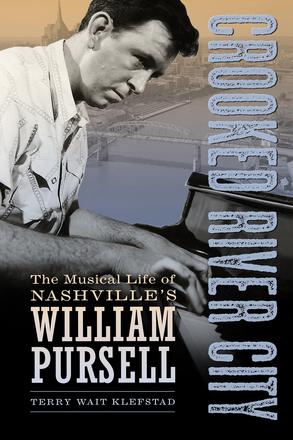
Crooked River City
The Musical Life of Nashville's William Pursell
A biography of one of Nashville's most influential and unique musicians
Description
A pianist, arranger, and composer, William Pursell is a mainstay of the Nashville music scene. He has played jazz in Nashville’s Printer’s Alley with Chet Atkins and Harold Bradley, recorded with Johnny Cash and Patsy Cline, performed with the Nashville Symphony, and composed and arranged popular and classical music.
Pursell’s career, winding like a crooked river between classical and popular genres, encompasses a striking diversity of musical experiences. A series of key choices sent him down different paths, whether it was reenrolling with the Air Force for a second tour of duty, leaving the prestigious Eastman School of Music to tour with an R&B band, or refusing to sign with the Beatles’ agent Sid Bernstein. The story of his life as a working musician is unlike any other—he is not a country musician nor a popular musician nor a classical musician but, instead, an artist who refused to be limited by traditional categories.
Crooked River City is driven by a series of recollections and personal anecdotes Terry Wait Klefstad assembled over a three-year period of interviews with Pursell. His story is one not only of talent, but of dedication and hard work, and of the ins and outs of a working musician in America. This biography fills a crucial gap in Nashville music history for both scholars and music fans.
Reviews
"With Crooked River City, Terry Wait Klefstad has given us a valuable account of how one American musician made a life and a living in music. In the case of William Pursell, that account provides encounters with and insights into some of the most important institutions, stylistic traditions, and industry centers in American music: Peabody Conservatory of Music; the US military; Eastman School of Music; Howard Hanson; rhythm-and-blues and the Nashville Sound; the Nashville music industry; the Nashville Symphony Orchestra; and the famous Bohemian Club of San Francisco.
Highly readable, Klefstad tells Pursell’s story from the perspective of a friend who happens to be a well-trained scholar with access to both the man and his archive. I recommend this book to anyone interested in professional music making in America—and especially Nashville—in the seven decades following World War II. Young musicians seeking a way forward will find Pursell's story instructive and inspiring. "
- Stephen Shearon, retired professor of musicology, Middle Tennessee State University